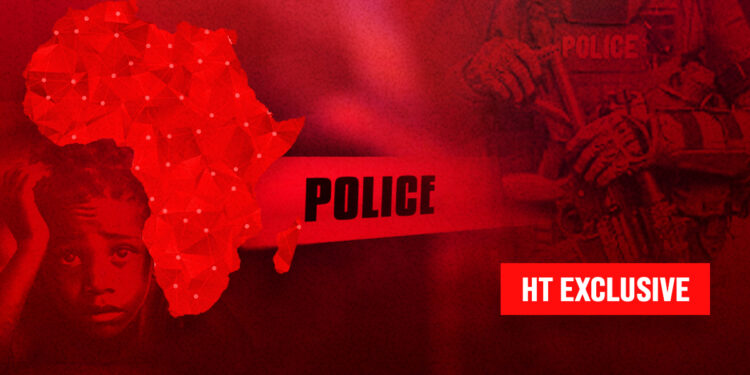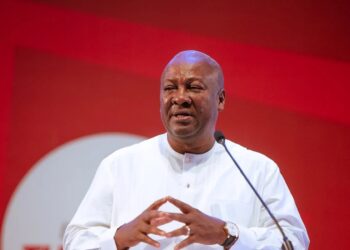By Ere-Ebi Agedah
In a comprehensive report released by Afrobarometer, alarming revelations about public perceptions of police conduct across Africa have come to light. The report, based on extensive surveys conducted in 39 African countries, sheds light on widespread concerns regarding corruption, brutality, and the lack of professionalism among law enforcement agencies.
According to the report, only one in three Africans believe that their police forces operate in a professional manner and respect the rights of all citizens. This sentiment varies significantly across countries, with rates as low as 13% in Nigeria and as high as 58% in Burkina Faso.
Afrobarometer is a pan-African, non-partisan survey research network that provides reliable data on African experiences and evaluations of democracy, governance, and quality of life. Nine survey rounds in up to 42 countries have been completed since 1999. Round 9 surveys (2021/2023) cover 39 countries.
Afrobarometer’s national partners conduct face-to-face interviews in the language of the respondent’s choice with samples of 1,200-2,400 adults that yield country-level results with margins of error of +/-3 to +/-2 percentage points at a 95% confidence level.
One of the most distressing findings is the prevalence of corruption within police forces. Among respondents who sought police assistance in the previous year, 36% reported having to pay a bribe to obtain the help they needed. Additionally, 37% of those who encountered the police in other situations admitted to paying a bribe to avoid problems.
READ ALSO: Nigeria: CBN Raises Interest Rate To 24.75%
Furthermore, the report highlights concerns about the involvement of police in criminal activities. Approximately three in ten citizens believe that their police forces often or always engage in criminal behavior, with an additional 27% stating that such activities occur sometimes.
The use of excessive force by the police is another significant issue raised in the report. On average, about four in ten Africans believe that their police forces often or always use excessive force when managing protests or dealing with suspected criminals.
The findings also underscore the lack of public trust in both the police and government efforts to combat crime. Less than half of the respondents expressed trust in the police, and only 37% believe that their government is doing fairly or very well in reducing crime.
Reacting to the report, Daniel Iberi, Afrobarometer communications officer for East Africa, emphasized the importance of addressing these concerns to ensure the effectiveness and legitimacy of law enforcement agencies across the continent. He called for concerted efforts from governments, civil society organizations, and international partners to tackle corruption, improve accountability, and promote professionalism within police forces.
Liberia’s National Police
Reacting to the survey, Robin Dopoe, Senior Editor of Liberia’s biggest Daily newspaper, the Daily Observer, noted that the Afrobarometer report’s findings aren’t surprising, as they reflect the actual views of the conduct of Liberia’s National Police generally.
He said ‘’While a decade of efforts to reform the LNP has created a somehow more professional force, the issues including abusive behavior, culture of impunity, and endemic corruption persist among officers. Without careful attention, the potential increase in these problems could be disastrous for the country.
‘‘Unprofessional behavior among police makes obtaining assistance challenging without paying a bribe. Worse yet, police extort money at every stage of an investigation, whether for petty crimes or rights violations. In some cases, investigations don’t even occur unless you pay. This unprofessional conduct fosters a culture of excessive force, involvement in criminal activities, and a disregard for citizens’ rights.”
‘‘However, amidst these negatives, the police have professionally improved in conducting arrests, and torture and ill-treatment in detention have decreased, partly due to the establishment of the Professional Standards Division, the LNP’s internal monitoring unit,” he said.
Indeed, the policing institution plays a vital role in the functioning of democratic nations, serving as a cornerstone for maintaining civil order, upholding the rule of law, and safeguarding individual rights and liberties.
In Nigeria
Four years ago, Nigerians in their numbers trooped out on the streets to denounce police brutality, extra-judicial killings and other malfeasance tearing the police apart.
Two days ago, a prominent video surfaced featuring the son of the esteemed musical icon Fela, wherein he levied accusations against the Nigerian Police Force, labeling them as the primary perpetrators of kidnappings in the country. Recounting an incident from when he was 18 years old, he narrated an experience where he and his friend were apprehended merely for loitering in front of their residence at night. Subsequently, they were released on bail the following day by his uncle, despite bail being legally stipulated as free.
In the same vein, the Head, Human Rights Writers Association Of Nigeria Emmanuel Onwubiko in his article ‘When Supreme Court Ruled On Nigeria Police’ noted that all officers have an individual responsibility for ensuring that they are aware of relevant legislation, and are informed about the extent of their legal powers and the context within which those powers can be properly exercised.
‘‘As stated in a UK report on the police, despite making important and often time-critical decisions, police officers are still accountable through the law for their actions. Respect for an individual’s human rights should be the central focus throughout the entire policing process.
‘‘Police forces should continually identify any relevant legislation for the continued professional development of firearms commanders and authorised firearms officers (AFOs).
“Furthermore Onwubiko said ‘‘When police are required to use force to achieve a lawful objective, such as making a lawful arrest, acting in self-defence or protecting others, all force used must be reasonable in the circumstances.
‘‘Use of force by police officers can result in judicial proceedings in both the criminal and civil courts. In cases where death has resulted, a public inquest or other inquiry will be held by the coroner or other officer. Every effort should be made to resolve a situation without resorting to the use of force or firearms, however, the overriding consideration should be a human rights-based approach to public and officer safety,” he said.
What Next
Against the survey carried out in Congo-Brazzaville, Kenya, Sierra Leone, Gabon, Liberia, Angola, Uganda, Guinea, Ghana, Seychelles, South Africa, Cameroon, Togo, Nigeria and the others, the Afrobarometer report serves as a wake-up call for policymakers and stakeholders to prioritize reforms aimed at enhancing police integrity and restoring public trust.
Suffice to note that failure to address these fundamental issues risks undermining the rule of law and eroding confidence in democratic institutions.
As African nations confront these challenges, the imperative for meaningful reforms and accountable governance has become urgent. The voices of ordinary citizens must be heard, and their concerns addressed to build societies where the rule of law prevails and human rights are respected.




































